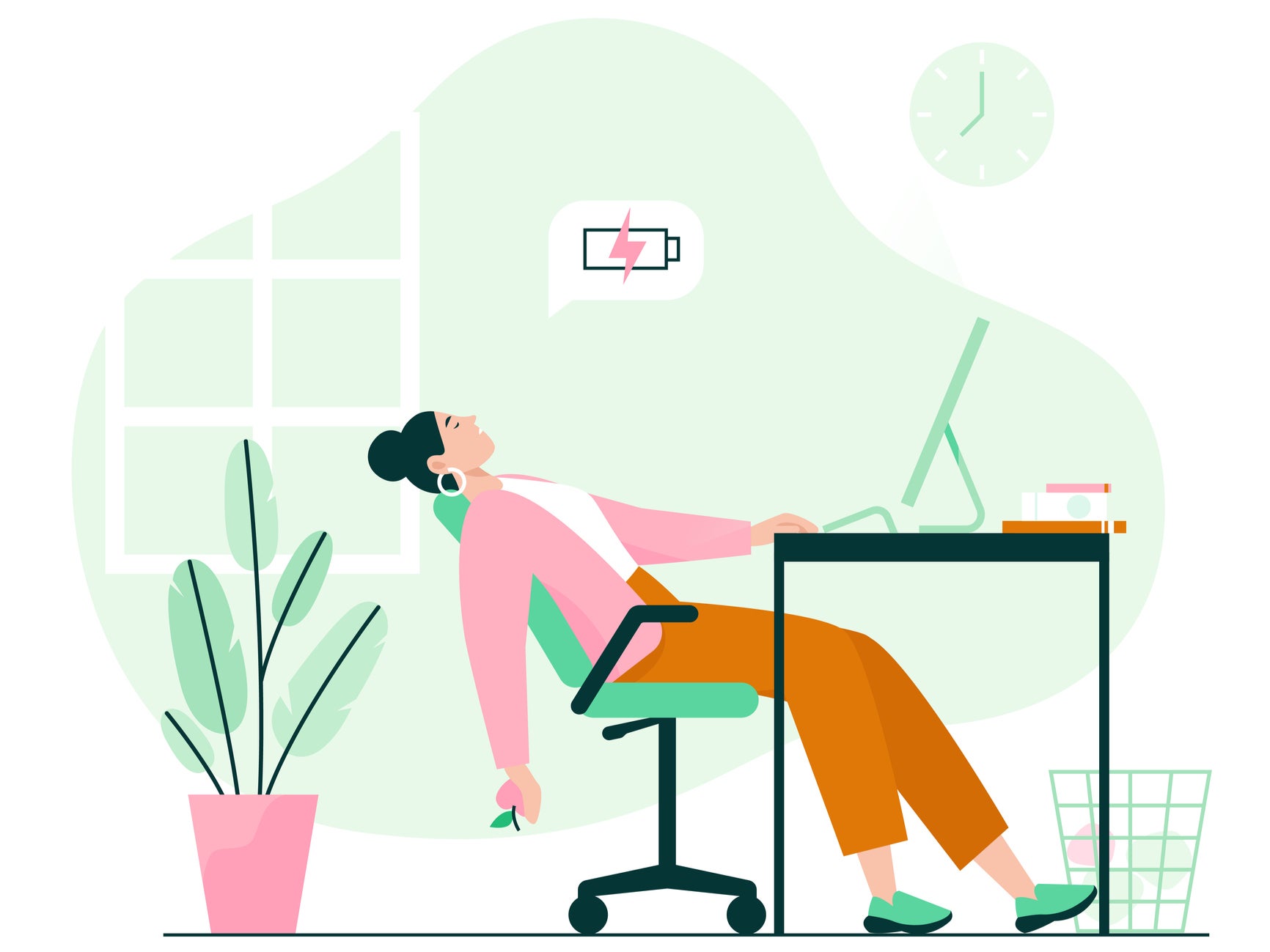Nearly half of employees are less bothered about their careers since Covid
New research also reveals different impacts on work/life balance between men and women

Your support helps us to tell the story
From reproductive rights to climate change to Big Tech, The Independent is on the ground when the story is developing. Whether it's investigating the financials of Elon Musk's pro-Trump PAC or producing our latest documentary, 'The A Word', which shines a light on the American women fighting for reproductive rights, we know how important it is to parse out the facts from the messaging.
At such a critical moment in US history, we need reporters on the ground. Your donation allows us to keep sending journalists to speak to both sides of the story.
The Independent is trusted by Americans across the entire political spectrum. And unlike many other quality news outlets, we choose not to lock Americans out of our reporting and analysis with paywalls. We believe quality journalism should be available to everyone, paid for by those who can afford it.
Your support makes all the difference.A study has found that almost half of employees have become less focused on their careers as a result of the coronavirus pandemic.
According to research by Aviva into the UK’s changing relationship with work , 47 per cent of employees care less about climbing the corporate ladder, with 21 per cent reporting a negative impact on how they feel about their job.
The findings also reveal that while more than one in three (35 per cent) employees feel their work/life balance has improved over the pandemic, one in five (20 per cent) has been negatively affected.
Nearly half (44 per cent) also said they feel they can never switch off from work, with 39 per cent feeling that their employer does not encourage them to do so outside their working hours.
This “always-on” work culture has led to 40 per cent of employees feeling concerned about work-related burnout.
It comes after research published earlier this year found that the average length of time an employee spends working in the UK has increased by almost 25 per cent since being at home. The survey showed that home workers took shorter lunch breaks, worked through illness were always available as the line between work and personal time become more blurred.
The impact of this “increasingly blurred” line is felt more keenly by women than men, according to Aviva’s research.
Women were more likely to report a negative impact on their work/life balance, and were significantly more concerned about the risk of work-related burnout than men (46 per cent vs 35 per cent).
The study also found that women were more likely to feel as though life has become more challenging over the last six months, and less likely to feel that hard work entitles them to claim back “me time” during work hours.
Fewer than half of women (44 per cent) feel they would be most productive in a “hybrid” working arrangement that involves working three or more days in the office, compared to more than half of men (52 per cent) who agree.
Women were more likely than men (71 per cent vs 67 per cent) to say that flexible working will play a bigger role when they make future decisions about their job.
Aviva warned that as more workers return to the office in the coming months, employers will need to carefully examine how they can do so without deepening the gender divide, as those with primary care roles – often women – may be put under increasing strain.
Debbie Bullock, wellbeing lead at Aviva, said: “The journey towards the workplace of the future has been accelerated by the pandemic, from decreasing office space and increased home working to widespread digitisation and non-linear careers.
“Employees will look for something in return to encourage them back to the office, and employers must ensure offices become a destination for collaborating, mentoring and socialising to rebuild relationships.
“It is also vitally important that people are treated as individuals, rather than employers trying to impose a one-size-fits-all approach. The pandemic may have been a collective experience, but the impact has been fragmented in so many ways, with women especially facing particularly acute stresses from the blurring of lines between home and work.”
Join our commenting forum
Join thought-provoking conversations, follow other Independent readers and see their replies
Comments